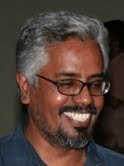Classmates
Campus comes to Film
Lal Jose's 'Classmates' stands out from other films on different counts. For one, when Malayalam film industry believes to be reveling itself with the aging heroes and geriatric themes, Classmates dares to do away with all of them. It fields all the young talents who yearn to perform and play their age in contemporary Malayalam cinema. Secondly, when all our 'macho' films are crying for blood and revenge, this film goes to the other extreme. Here you have a father whose son is (accidentally) murdered by his classmate, pardoning him. And the murderer himself, on the other, refuses to reveal the name of the one who tried to murder him! If his earlier film 'Achanurangatha Veedu' was all about absolute lack of pity and humanity in society, this film is all for love, remembrance and tenderness. If the earlier film was more about young women, this film is about youth and love.
Classmates is a campus film that mixes different genres comfortably. It weaves into itself threads of a love story, a mystery thriller, a nostalgic trip to youth, and a buddy movie.. Usually our campus movies are all about adolescent love and their misadventures. Rarely does politics enter our campus films these days, and if at all it does, it invariably brings in tragedy and violence in its trail. In this film, politics, love and nostalgia mix together without one negating the other. So, when a group of classmates come back to their campus after a lapse of more than a decade, their memories unfold in different moulds, until they meld into the central narrative of a failed love. They unfold interestingly with some of the same scenes being narrated from different viewpoints of campus politics, silent love, youthful abandon etcAt the core of the film is this story of an unfulfilled love, that too, significantly, between a Tamil Brahmin boy (son of lecturers working in the same college) and a Muslim girl. This, in a way, seems to metaphorically remind us of the unfinished revolution of 'progressiveness' that used to animate our campuses. So, the film is not only about a lost love but also about a lost dream unfolding through a narrative set in a past campus, a past that is irredeemably lost.
One interesting thing one witnessed while watching the film was the attitude of the campus youth who thronged the theatres to make this film a box office success. They seemed to enjoy all the tightly edited campus scenes, but booed at two occasions when the central characters begin to 'talk' and reflect about their relationship and love. (Were they booing the shallow dialogues or the hazy romanticism is difficult to answer. But it was not a coincidence that these were scenes that tended to 'stay', or for the youth 'stray' from the breezy editing pattern of the other sequences. What they seemed to ask for is a television experience of fast moving images, without a moment of reflection 'interrupting' it as an irritant. Or, is it that our campus/youth films are yet to find a (spoken) language of their own?

